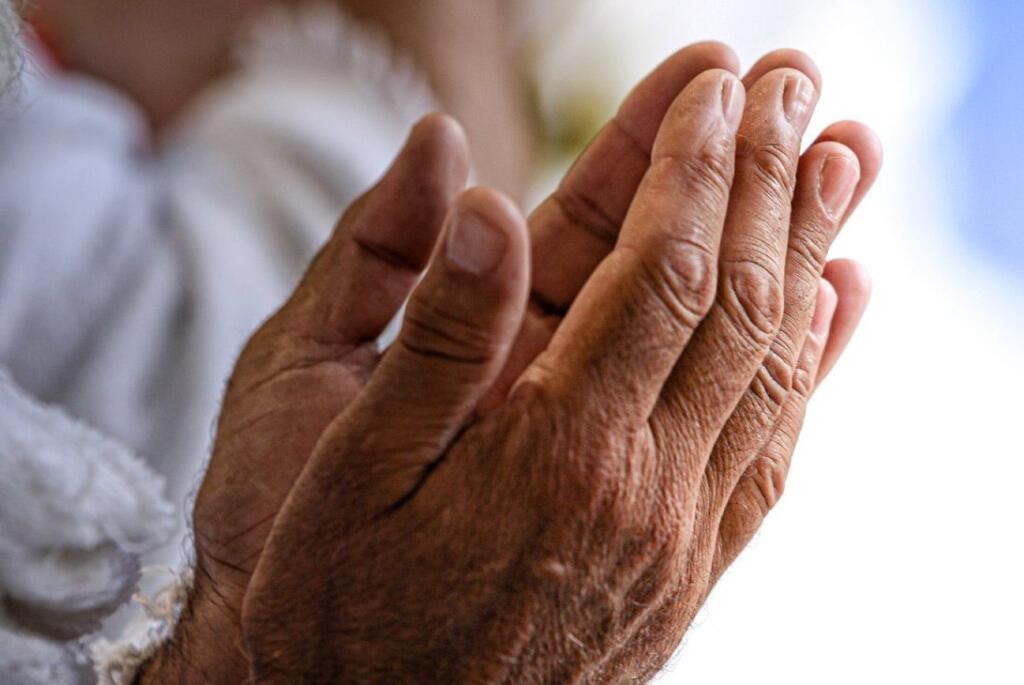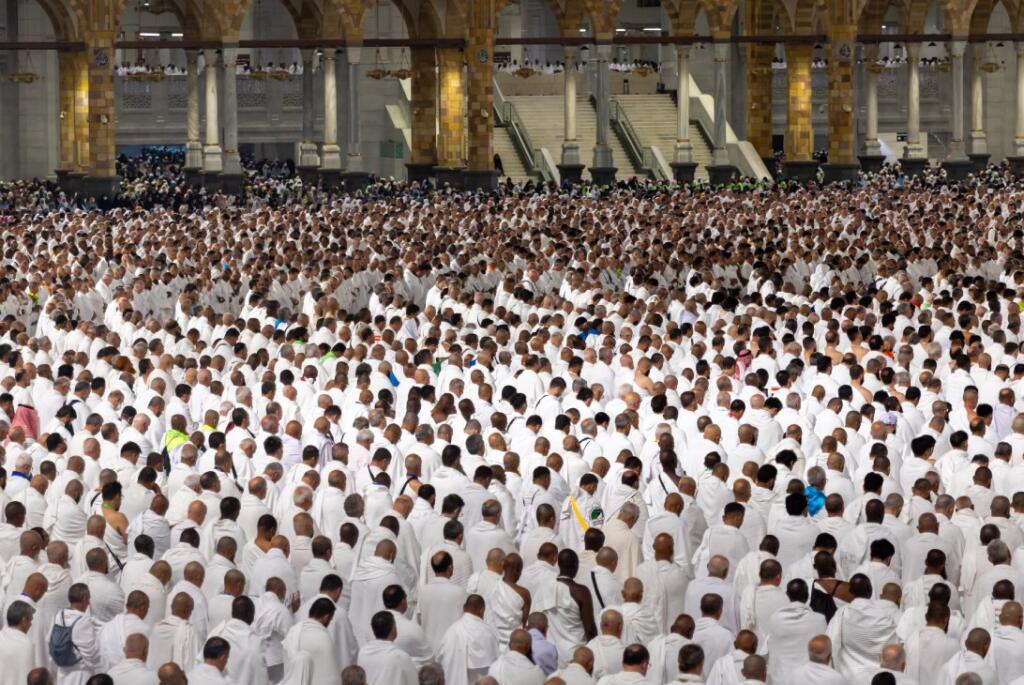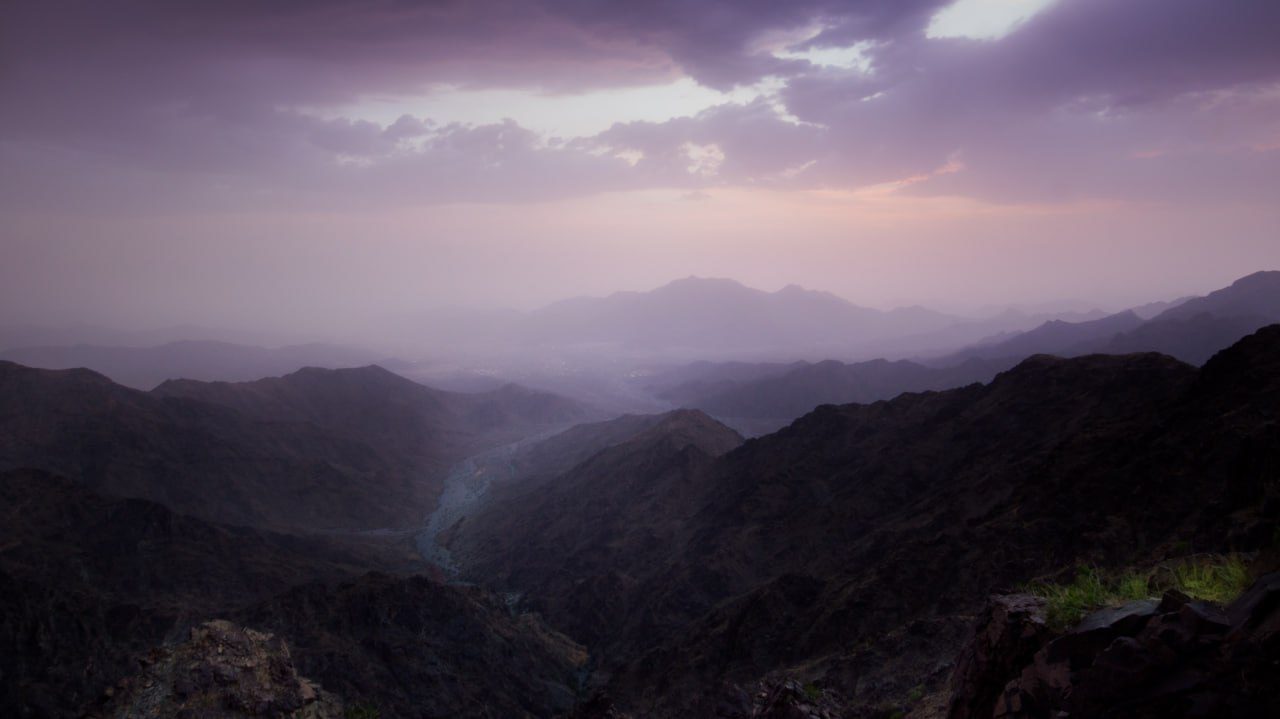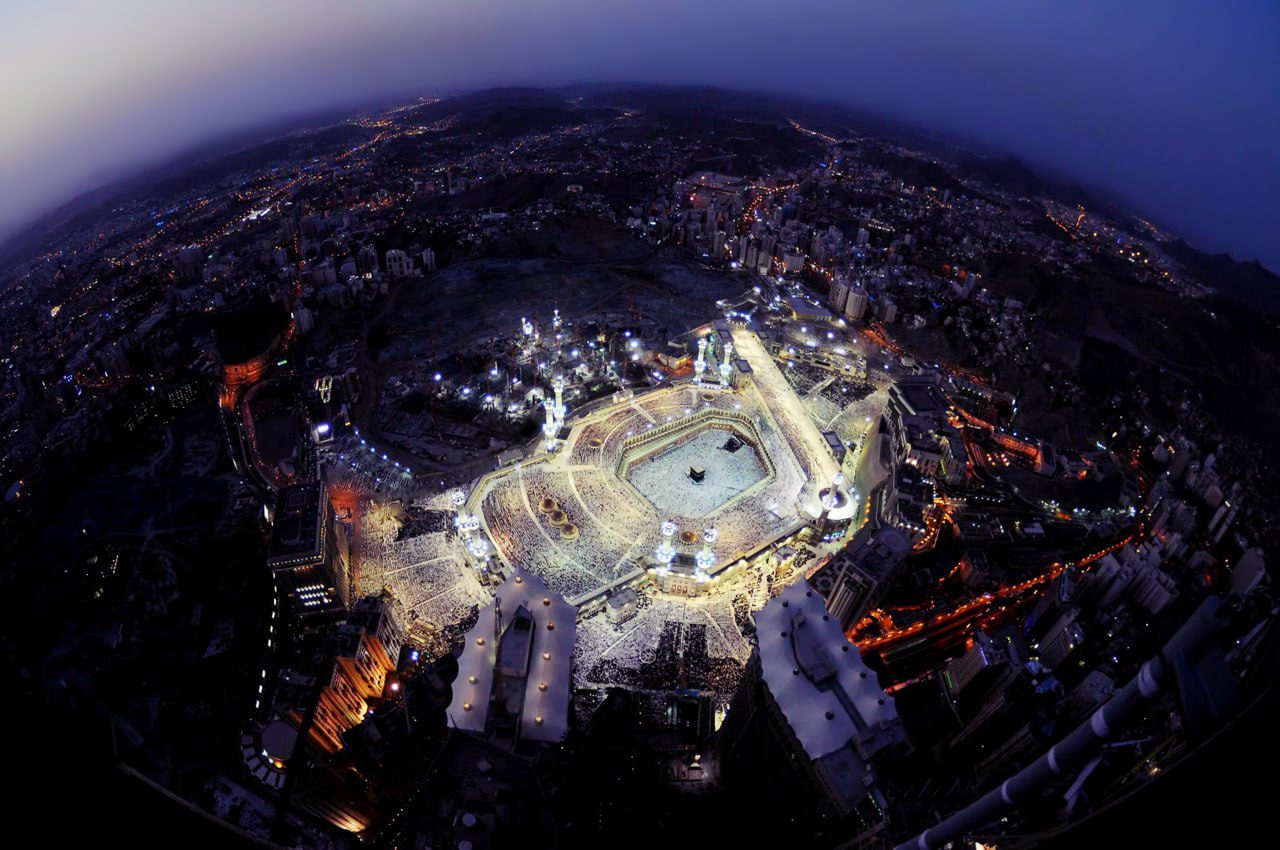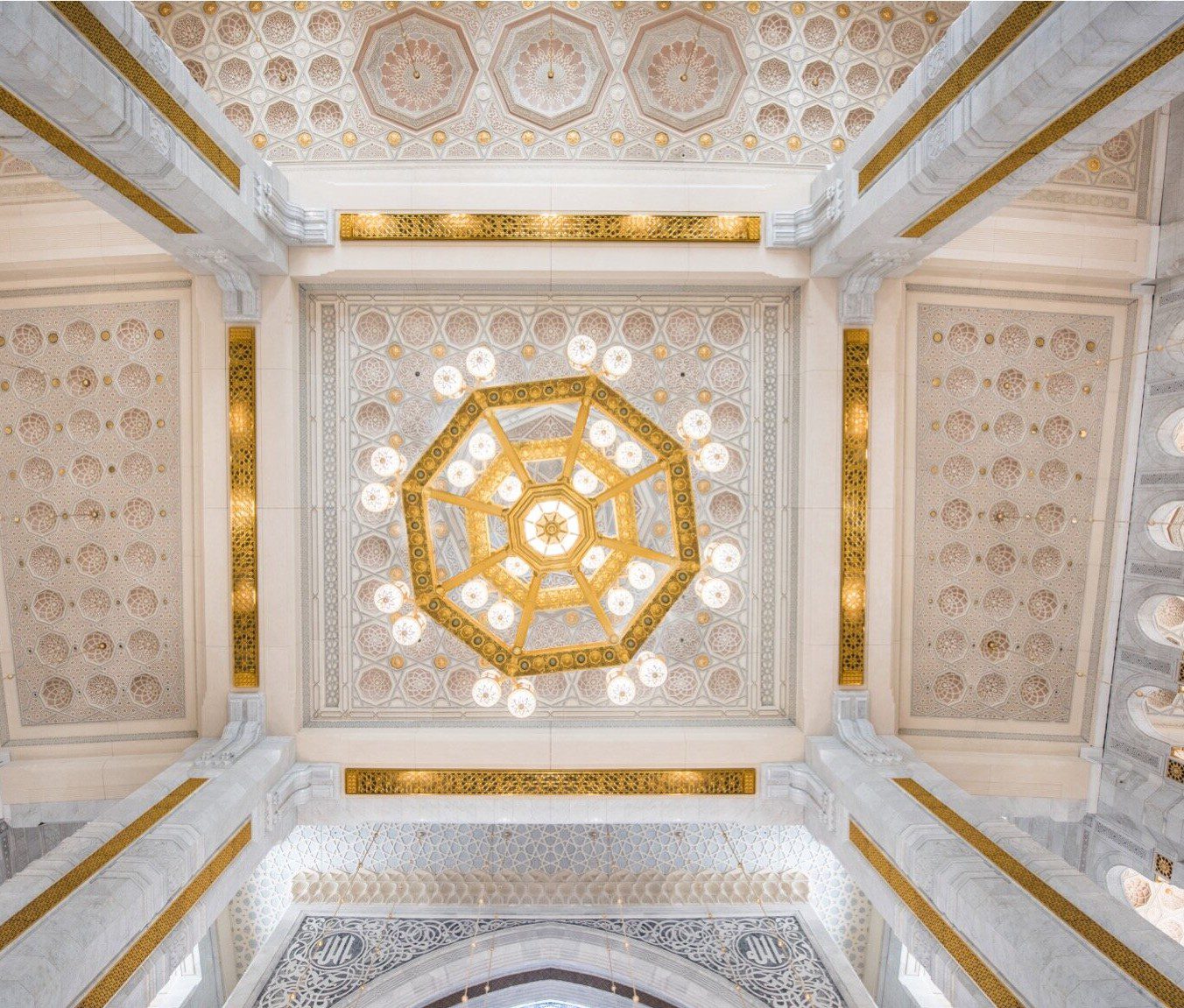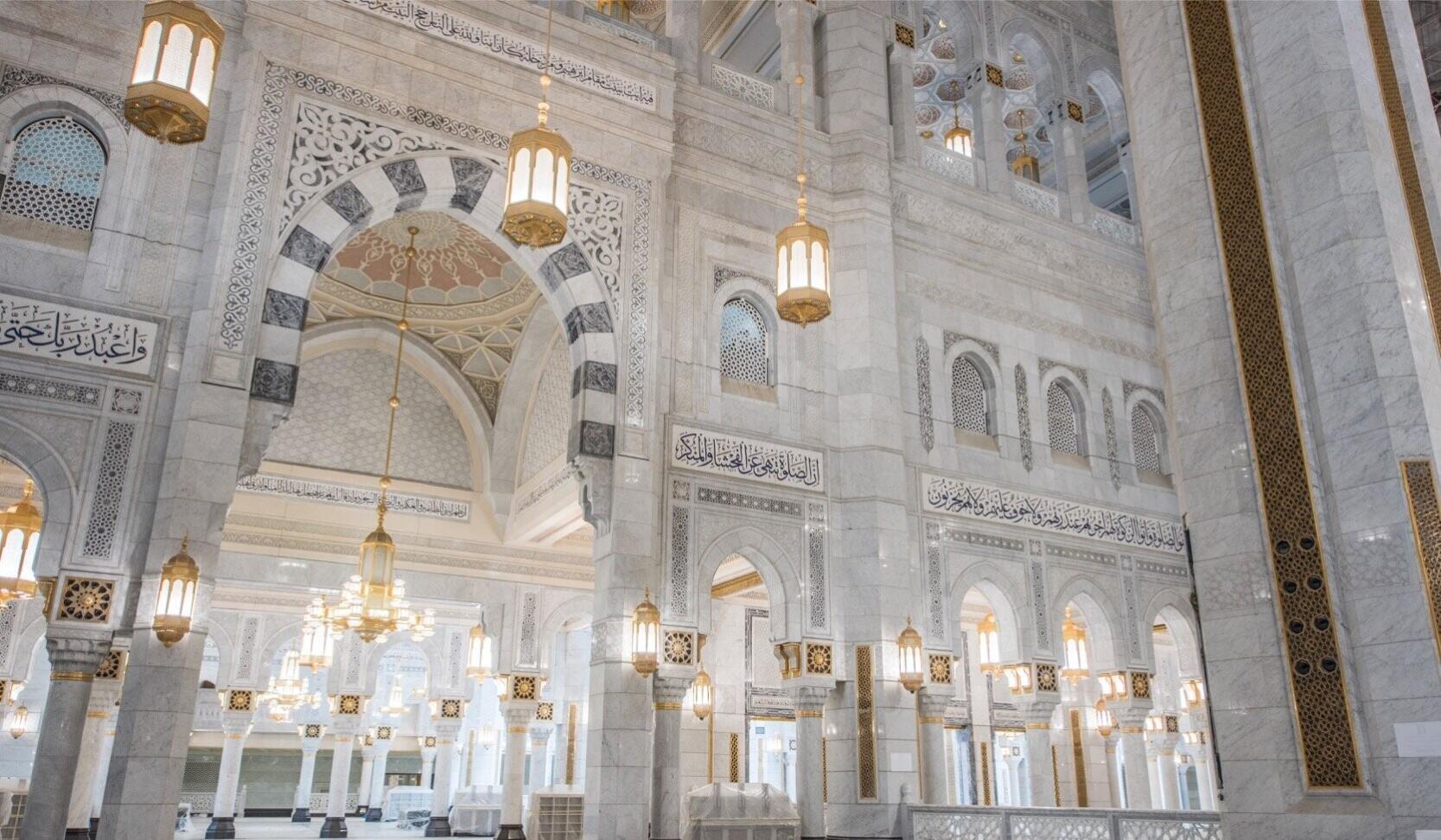“…Whoever commits to (performing) ḥajj, let them stay away from intimate relations, sins, and arguments during ḥajj. Whatever good you do, Allah knows of it. Take provisions (for the journey) — surely the best provision is taqwā (mindfulness of Allah and piety). And be mindful of Me, O people of understanding!” (2:197).
The best provision, goal, and essence of ḥajj is taqwā. It is cultivated before, deepened during, and practised after ḥajj. Taqwā should transform not just your journey of ḥajj, but your entire life.
Taqwā is to protect yourself from the punishment of Allah by avoiding His prohibitions and implementing His commands. All the Prophets of Allah called their people to worship Allah and to live a life of taqwā. Taqwā is the path to attaining the love, mercy and help of Allah. Taqwā allows you to distinguish between truth and falsehood, to overpower Shayṭān and gain victory over your enemies. Taqwā is the ultimate ingredient for success, as it is a shield from the Hell-fire and the path to Paradise.
Acts of worship were prescribed to purify the soul, reform the heart, and cultivate consciousness of Allah (taqwā). Although the verses about ḥajj in the Qur’ān are few, Allah ﷻ repeatedly emphasises the importance of taqwā within them. This is because ḥajj uniquely cultivates taqwā in ways that other acts of worship do not, once you understand its true purpose and spiritual meaning.
“The pilgrims were instructed to take provision for their journey and not to travel without it. Then Allah draws their attention to the provision for the journey to the hereafter, which is taqwā. Just as a traveller cannot reach his destination without physical provision, the one journeying to Allah and the hereafter cannot reach his destination without the provision of taqwā. Thus, both outward and inward provisions are mentioned: the physical and the spiritual.” – Ibn al-Qayyim (raḥimahullāh)
Hajj and Taqwa
Taqwā is not limited to physical acts. Allah ﷻ says, “Whoever honours the symbols of Allah — indeed, it is from the taqwā of hearts” (22:32). The heart is the true home of taqwa. Cultivating it is among the most important inner acts during ḥajj.
Honouring the rites of ḥajj (e.g. standing at ʿArafah, sacrificing animals, shaving the head etc) is a reflection of a heart filled with taqwā. The Prophet ﷺ said, “This ummah will remain in goodness as long as they give due reverence to this sacred (time and place); but if they neglect and waste it, they will be ruined” (Aḥmad).
When the rituals of ḥajj and the symbols of Allah fill you with awe and when their significance settles deep in your heart, the ultimate fruit of your journey — taqwā —will begin to blossom.
Honouring Allah’s symbols and sanctities is a sign of strong īmān and deep love for Him. Conversely, neglecting or violating them shows weakness in faith and disregard for Allah. Delegating others to throw pebbles or skipping the overnight stay without necessity, contradicts the Sunnah and reflects a lack of respect for Allah’s sacred symbols. Ḥajj is not a leisure trip or a tourist excursion. It is a profound act of worship.
Throughout your ḥajj, honour Allah’s symbols by staying away from sins, and doing as many good deeds as you can. Fulfil every rite with excellence, love, and humility.
Sabr
Ṣabr, often translated as patience, refers to holding back your reactions and being in control of your emotions, and to persevere in doing something you dislike, for the sake of Allah. Ṣabr is a key provision in your journey to Allah. The reward of ṣabr is unique. Allah ﷻ informs us,
إِنَّمَّا يُوَفَّى ٱلصَّٰبِرُوْنَ أَجْرَهُمْ بِغَيْرِ حِسَابٍ
“…Certainly, those who observe patience will be given their reward in full without measure” (39:10).
The reward of ṣabr has been left unspecified. It has been kept a surprise. This is because it is a difficult quality to attain. To persevere and not give up, to endure life’s difficulties without complaint and to continue struggling against all the odds is a trait of the great. It is as Allah described, one of the “…matters that require strong resolve” (31:17).
Hajj: The School of Sabr
Ḥajj serves as a practical lesson, training you to cultivate ṣabr in all aspects of life. Ṣabr (patience and perseverance) is a broad term and encapsulates a variety of meanings. In ḥajj, you will be practising all three forms of ṣabr:
(1) Ṣabr in obeying Allah
Ṣabr is needed in every act of obedience to Allah. Ṣabr is practised when performing the rituals of ḥajj such as the ṭawāf, saʿy, standing at ʿArafah, staying at Muzdalifah, throwing the pebbles at the Jamarāt, and maintaining continuous remembrance and supplication to Allah.
(2) Ṣabr in staying away from sins
During ḥajj, you refrain from even permissible actions such as using perfumes, engaging in marital relations, cutting hair, and trimming nails. If you can be patient with these minor prohibitions, it becomes easier to exercise patience in avoiding sins.
One of the most important lessons to learn during ḥajj is to control and restrain the limbs from committing what Allah has prohibited.
(3) Ṣabr in regards to the trials Allah has decreed
Ḥajj is filled with difficulties and uncertainties. You will face inconvenience, difficulty, and discomfort during your journey due to the crowds, unfamiliar customs, and even the behaviour of some individuals. However, this is the perfect training ground for developing patience. The Prophet ﷺ said, “Whoever tries to be patient, Allah will grant him patience” (Muslim).
Through ḥajj, you will learn to endure hardship and develop patience in every facet of life, thus strengthening your relationship with Allah.
The Prophet ﷺ said: “No person has been given anything better and more encompassing than patience” (Bukhārī).
Reflect: Think of all of the things which really annoy you and push your patience. You’re likely to face them during ḥajj.
Act: Start to practise your patience from now.
Practising Sabr and Taqwa in Hajj
On the Day of ʿArafah, al-Faḍl b. ʿAbbās, the cousin of the Prophet ﷺ was riding with him. Al-Faḍl was a young handsome man. He began to look at the women, so the Prophet ﷺ turned his face away with his hand. When he turned to look again, the Prophet ﷺ said to him, “Nephew, this is a day on which whoever controls his hearing, sight, and tongue will be forgiven” (Abū Yaʿlā).
Controlling Your Tongue
During ḥajj, you will be pushed to your limits by those around you or the systems. You may feel like arguing, cursing or using vulgar language, however Allah has specifically warned against it. He says,
“…Whoever commits to (performing) ḥajj, let them stay away from intimate relations, sins, and arguments during ḥajj…” (2:197)
Be conscious of every single word you utter during ḥajj. It is very easy to slip up. Be wary of backbiting, slandering or lying.
The purpose of ḥajj is to attain taqwā: to train yourself to stop sinning. Sometimes you may limit your understanding of worship and taqwā to something which is only between you and Allah. But what ḥajj teaches you is that Allah takes the rights of His servants very seriously. If you violate the honour and rights of your fellow believers, your ḥajj becomes deficient, and may not be accepted by Allah. Hours and nights of worship can be reduced into nothing, and it may be due to just a minute of backbiting.
Anger
ʿAbdullāh b. al-Mubārak (raḥimahullāh) was asked, “Summarise for us good character in one phrase.” He replied, “Avoiding anger.” Ḥajj is the time to control your anger, especially when you may be feeling irritable due to lack of sleep, tiredness and disorganisation. If you feel angry, seek Allah’s protection from Shayṭān, perform wuḍū, move away and control your tongue. Ḥajj is the time to develop forbearance: to overlook people’s faults and to refrain from reacting when provoked.
“Tie up your anger with a ‘chain’ of forbearance. Anger is like a dog; if it is let loose, it will wreak havoc.” – Ibn al-Qayyim (raḥimahullāh)
The Eyes
Gazing at ḥarām gives Shayṭān open access to your heart. Protecting yourself from looking at ḥarām has become especially more important today, with the increase in shamelessness, easy access to ḥarām images and the normalisation of it. The eye is the entry point to your heart. What you look at affects your emotions, desires and thoughts.
Once you see something ḥarām and it captivates you, your heart becomes imprisoned by it, and you can’t stop thinking about it. This is why scholars said that lowering the gaze liberates the heart from the clutches of one’s desires. Allah ﷻ says, “Tell the believing men to lower their gaze and guard their chastity. That is purer for them…” (24:30). Thus, one of the most powerful means to purify your soul is guarding your gaze and protecting your private parts.
Reflect: Ḥajj is a training ground for taqwā. How will you protect your gaze, both in person and on screen? What challenges might you face, and what practical steps can you take to overcome them?
Hajj is the perfect time to cultivate your akhlāq (good character), to develop self-restraint, and to control your tongue and gaze. This should be something you carry forward from your ḥajj and make a permanent part of your life.

